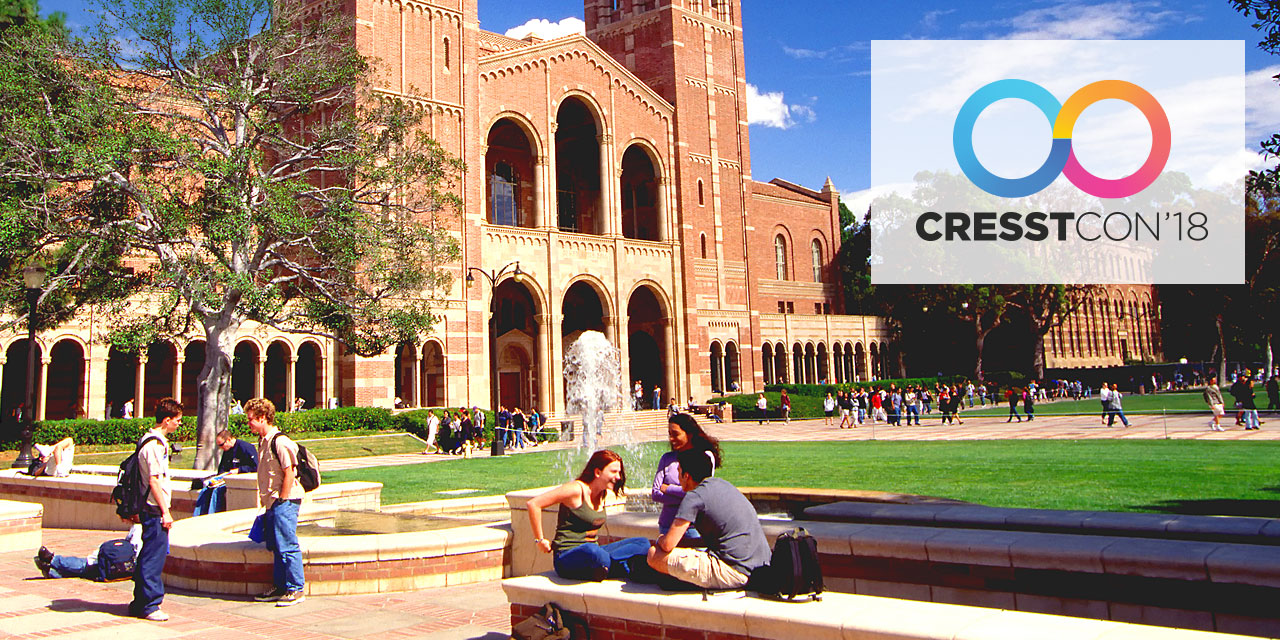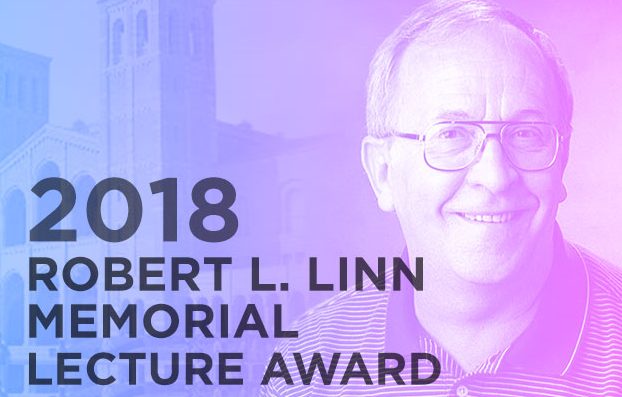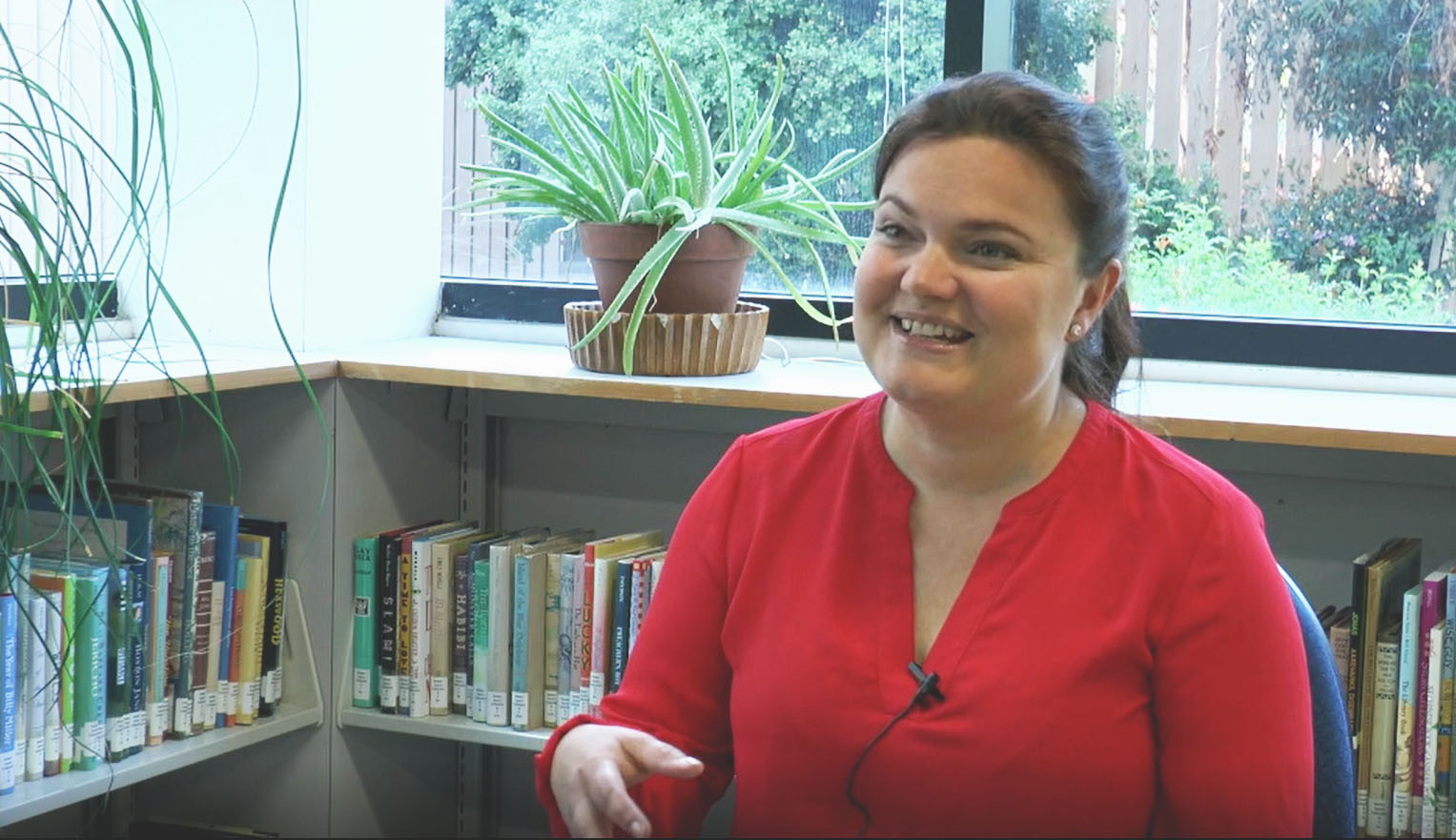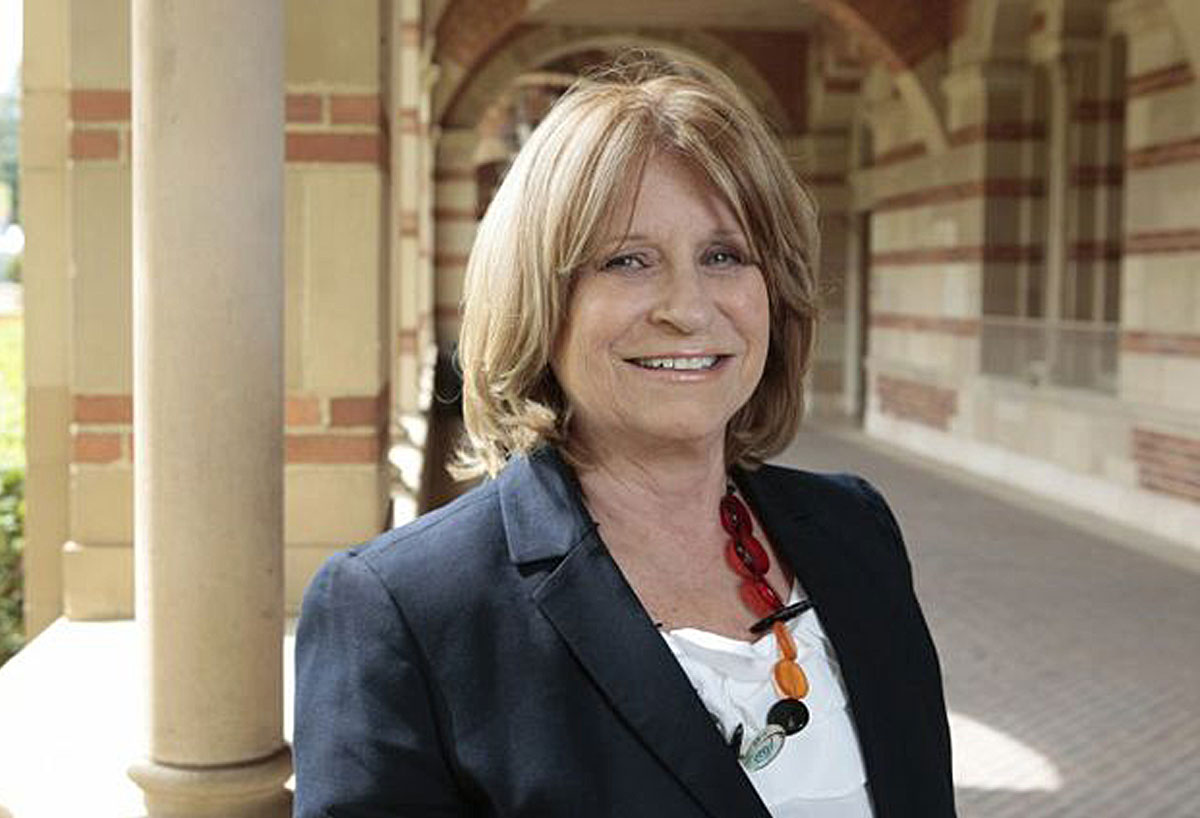One exciting aspect of being at CRESST, is the opportunity to work with UCLA undergraduate researchers. Undergraduates come to CRESST through various routes, for example, by responding to job postings, contacting us about volunteer opportunities and connecting with our senior researchers through courses. They enrich our projects with their motivation, intelligence and genuine desire to help out.
This year, our undergraduate researchers will have the opportunity to present scientific posters at our upcoming conference, CRESSTCON’18. We invite more students (including you!) to apply. All presenters must register for the conference. Click here to present a scientific poster at the CRESSTCON’18 Innovation Showcase.
We’ve asked our current undergraduate researchers to tell us a little about themselves and their experience at CRESST. Check out what they have to say!
Claudia Riveroll
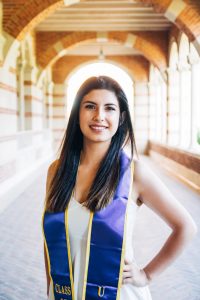
Photo courtesy of Claudia Riveroll
I began working at CRESST in the fall of 2017 as a Senior Cognitive Science Major. During my time at CRESST I have been able to learn about and explore several different aspects of research. The main project I worked on was the efficacy testing of an iPad math game developed by PBS KIDS called Measure Up. I assisted other researchers with participant recruitment at several different preschools and administered pre and posttest math assessments with the children in the study. I was able to learn more about the value and insight that qualitative research can offer while I was observing gameplay for three weeks. Being in the classroom while children played the games was very helpful when analyzing the game play data.
Another role I had while at CRESST was researching for and creating an ontology for two scale balance related games in the PBS Measure Up app. I collected several articles that explored misconceptions children had when attempting to equalize scale balances. We were able to connect actions described in these articles with actions of children in the scale balance games in order to identify children that had misconceptions about measurement.
Overall I feel that CRESST gave me a unique opportunity to explore a range of facets in research.
Overall I feel that CRESST gave me a unique opportunity to explore a range of facets in research. Besides data collection and literature review research, I also participated in the testing of several games, written assessments, and surveys and provided feedback about usability. I also had the opportunity to assist with other projects and meet researchers with a wide range of interests and backgrounds. During our weekly lab meetings we would have researchers from CRESST speak about their current/past projects and their journey from college to becoming researchers. I am very thankful to CRESST and UCLA for giving me the opportunity to work alongside so many brilliant and genuinely kind people this year.
Tianying Feng
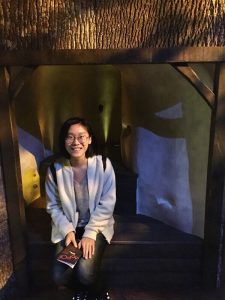
Photo courtesy of Tianying Feng
I am Tianying (Teanna) Feng, a third year Cognitive Science major and Statistics minor at UCLA. I started working as an undergraduate researcher at CRESST in the fall of 2017. I have always been interested in learning how we may theorize about the mind quantitatively and computationally by synthesizing research and perspectives from multiple disciplines.
At CRESST I helped with a project in collaboration with Public Broadcasting Service (PBS) KIDS. We evaluated instructional games that teach and assess how young children learn measurement concepts such as weight. My experiences with data collection and analyses of the data sparked my interest in developing useful measures of children’s knowledge using simulations. Some children and their responses may be constrained by the linguistic demands of the assessment items, whereas their actions could shed light on their thinking.
I also helped develop algorithms that aligned with past literature on children’s intuitive knowledge to model such actions, and results fell in line with the statistical analysis of children’s test scores. Furthermore, I presented a poster on the 2018 UCLA Research Day. My research investigated to what extent game-based measures could approximate players’ cognitive processes by incorporating the economic concept of utility into signal detection theory (SDT) to evaluate players’ in-game performances and decision making. I am also one of the authors on three papers, including two for PBS KIDS.
My experiences with data collection and analyses of the data sparked my interest in developing useful measures of children’s knowledge using simulations.
My fieldwork tasks involved recruiting activities, administering tests to participants one-on-one, and observing gameplay, along with activities such as conducting literature reviews, data entry, proctoring, equipment set up, internal usability testing, and designing graphics for computer-based assessments. Given all the opportunities to learn and apply what I have learned, I truly appreciate the guidance, encouragement, and informative feedback I have received from researchers at CRESST, which all motivate me to stay inquisitive.
Anna Lee
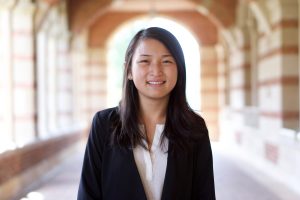
Photo courtesy of Anna Lee
I’m from San Diego and I’m a rising junior majoring in Statistics. At UCLA, I’m involved in the co-ed business fraternity Alpha Kappa Psi and a student-run mock mutual fund, Bruin Asset Management. I’m interested in data analytics mainly because I love exploring and dissecting problems, and I find it very rewarding to do hands-on work in research.
This past quarter I had the opportunity to volunteer at CRESST as a research assistant. I was mentored by a Senior Statistician, Thomas Maierhofer, who met with me bi-weekly to give me both guidance on the research we were conducting and general training regarding statistical analyses and coding in R.
My particular project involved analyzing telemetry data, which logs events moment-to-moment (e.g., every button clicked), from the game, Martian Maze, designed by CRESST. The game itself was administered to 12th grade students, and its objective was to navigate a UFO through a 2D maze in darkness with the help of a flashlight. Players must successfully avoid various obstacles in the maze in order to reach a target point.
The goal of the project was to take each individual action a player made and use those actions to extract some meaningful measure of their latent abilities – specifically, Risk Affinity and Reasoning Ability. We worked in R to manipulate the dataset, recording every single action and location of each player and a history of their knowledge at that point, and applied a “judgement” function to each action a player made. For example, a movement action could be judged to be an “informed move,” since the player knew the space they were moving into was clear of any obstacles. By contrast, a movement action could be “illogical” if a player moved into a space where they knew there was an obstacle (this knowledge gained from shining the flashlight there).
We then color-coded and mapped out the actions, allowing us to see the “judgement” of every single move a player made. This was my favorite part of the project, since the plots actually showed a player’s strategy and to some extent, their cognitive processes. In multiple cases, we could see how at first a player would have many “lucky” or “unlucky” moves where they moved through the darkness using guesswork and no flashlight. In later attempts, they would have more “informed move” actions since they started using the flashlight and formed a strategy over time, learning how to navigate the maze more effectively.
We also developed a Bayesian network for the various action types and latent variables, in order to see how Risk Affinity and Reasoning Ability were affected by the action types, and vice versa. For instance, observing a “lucky” move (not using the flashlight and moving without running into an obstacle) would cause High Risk Affinity probability to increase significantly, and High Reasoning Ability to decrease. This was a great opportunity for me to learn how a Bayesian network actually functions by creating one myself.
This was a great opportunity for me to learn how a Bayesian network actually functions by creating one myself.
Some future outlooks for the project are implementing the method on some newer data, as well as considering different ways to “judge” the actions. The various strategies players exhibited are also helpful for determining player profiles and clustering them into groups for further analysis. I also hope to present the research at various conventions in the future.
Working at CRESST has definitely been the most academically rewarding experience I’ve had at UCLA. I challenged myself and significantly refined my skills in R, as well as gained a wealth of new statistical knowledge. It was genuinely such a joy to be learning week after week, and I can’t thank Thomas enough for his mentorship in both statistics and slacklining. I’m very excited to be back in Fall!
We are always looking to add more students to our team at CRESST. If you’re interested in working with us, please contact Noelle Griffin at griffin@cresst.org.
